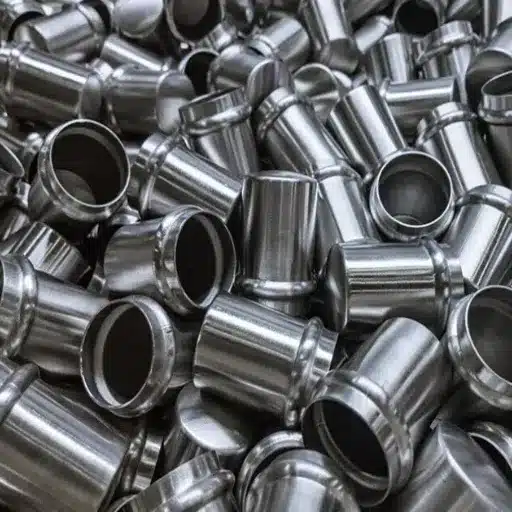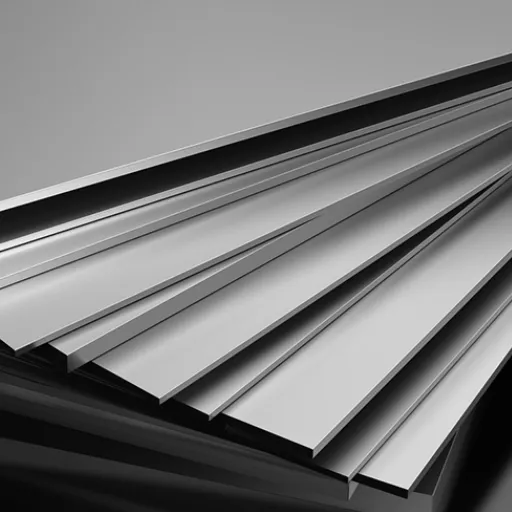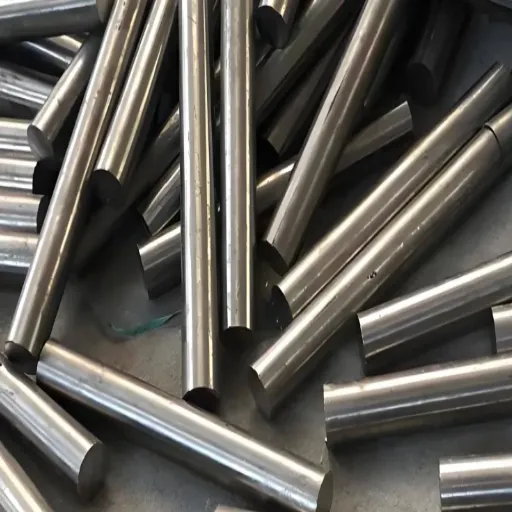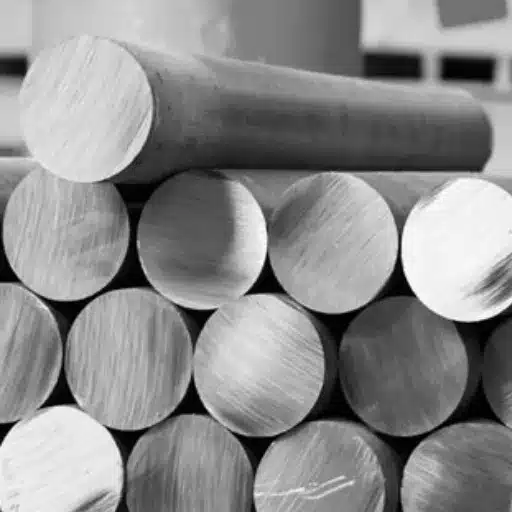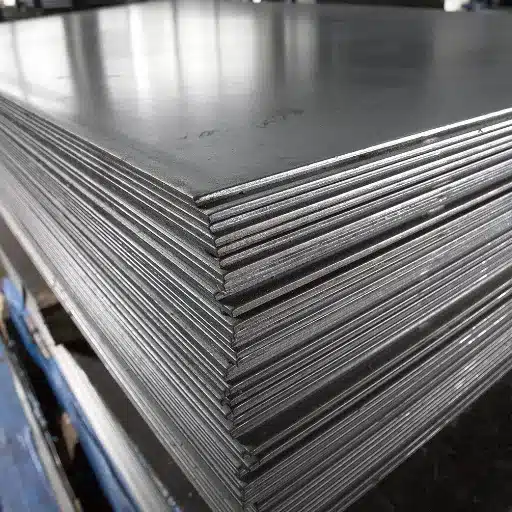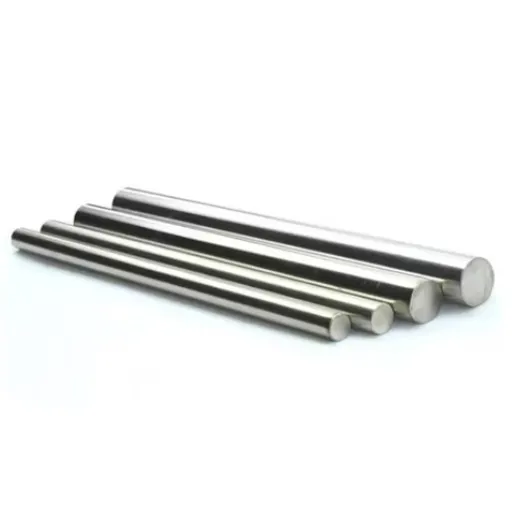The automotive sector continues pushing innovation to produce efficient vehicles, which are also considered strong, light, and safe. Among the countless advances affecting this industry, the utilization of high-strength materials stands out. One such material, the 700L steel plate, is well known for its strength and utility. This blog post intends to inform you about how the use of 700L steel plate is transforming automotive design and manufacturing in terms of rugged durability, performance, and cost effectiveness. Suppose you are someone in this industry or just interested in the materials behind automotive developments. In that case, this article shall give you an insight into why the 700L steel plate is fast becoming a preferred option in the sector!
What Are the Key Attributes of 700L Steel Plate?
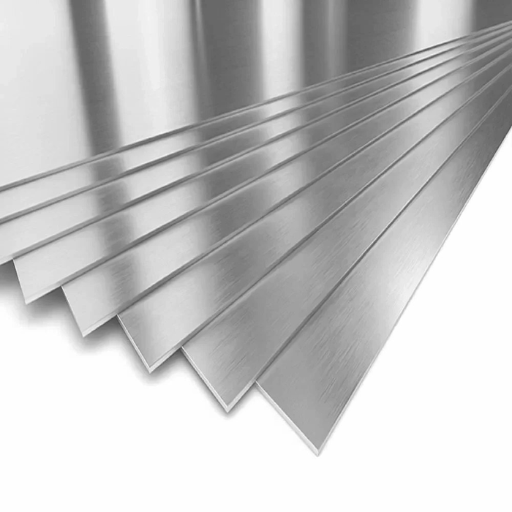
- High Strength: 700L steel plate is manufactured to possess great strength; hence, it suits applications with the greatest demands, e.g., automotive manufacturing and other industrial areas.
- Durability: The steel’s tough nature makes it last forever; however, it is highly strained or in merciless conditions.
- Lightweight: While being strong, 700L steel provides the advantages of lightweight, enabling an automotive design with higher fuel efficiency.
- Formability: The highly workable material allows the engineers to design a complicated structure without compromising the material itself.
- Corrosion Resistance: 700L steel plate has several benefits against rust and wear, thus lowering maintenance and increasing product life.
Before these properties, a 700L steel plate is a versatile, flexible, and dependable choice in present-day engineering and manufacturing.
Understanding the Mechanical Properties of 700L Steel
| Key Point | Details |
|---|---|
| Yield Strength (MPa) | ≥750 |
| Tensile Strength (MPa) | 800–950 |
| Elongation (%) | ≥10 (thickness <3mm), ≥12 (thickness ≥3mm) |
| Cold Bending | 180° bend, diameter = 2.0a |
| Chemical Composition | C ≤ 0.10%, Mn ≤ 2.10%, Si ≤ 0.50%, P ≤ 0.025%, S ≤ 0.010% |
| Key Alloying Elements | Al ≥ 0.015%, Nb ≤ 0.09%, V ≤ 0.20%, Ti ≤ 0.15%, Mo ≤ 0.50% |
| Formability | Excellent for cold bending and stamping |
| Weldability | Optimized for robust weld joints |
| Impact Resistance | High resistance to dynamic and sudden loads |
| Applications | Automotive beams, chassis, axles, suspension, EV platforms |
| Size Range (mm) | Thickness: 3.0–12.0, Width: 900–1600 |
| Strength-to-Weight Ratio | High, enabling lightweight yet strong structures |
| Fatigue Resistance | Outstanding for dynamic load applications |
| Standards Compliance | Meets EN 10025-6 and other global automotive standards |
Exploring the Durability and Strength of 700L Steel
| Category | Key Points |
|---|---|
| Yield Strength | Minimum 700 MPa, ensuring high-load performance. |
| Tensile Strength | 800–950 MPa for excellent structural reliability. |
| Elongation | ≥10% (thin) / ≥12% (thick) for better flexibility. |
| Applications | Cranes, vehicles, bridges, chassis, wind turbines. |
| Advantages | Lightweight, durable, weldable, and cost-efficient. |
| Formability | Excellent for bending and shaping complex designs. |
| Fatigue Resistance | Outstanding for repetitive stress environments. |
| Impact Toughness | Reliable under extreme cold or stress conditions. |
| Weldability | Simple for automated processes, robust structures. |
| Sustainability | Reduces weight, energy use, and carbon footprint. |
How Does 700L Steel Bend and Weld?
700L steel is esteemed for its excellent bending and welding qualities, finding application in a broad spectrum of demanding occasions. This has placed 700L steel very high in demand. Some data and visual representations of some of its characteristics are given below:
- Formability
- 700L steel bends to unusually complex shapes but maintains its structural integrity.
- This very low minimum radius of bending of 3xs ensures versatility in design.
- Consistency of Performance
- Microscopic consistency allows bending without cracks/fractures, while the same performance is repeatable.
- Tested to provide consistent results at different strain rates.
- Enhanced Weldability
- Can be welded by any of the usual processes: MIG, TIG, and arc welding.
- Low carbon equivalent ensures higher weld strength and fewer chances of weld defects.
- Thermal Stability during Welding
- Maintains strength through welding procedures in high-temperature zones.
- Very little preheating is required, greatly saving time and energy during assembly.
- Durability of Welded and Bent Structures
- Meant to stay the distance against fatigue stresses from repetitive loads.
- Excellent in tests for mechanical properties and in tests detecting these properties under harsh environmental conditions.
Why Is 700L Steel Used in the Automotive Industry?
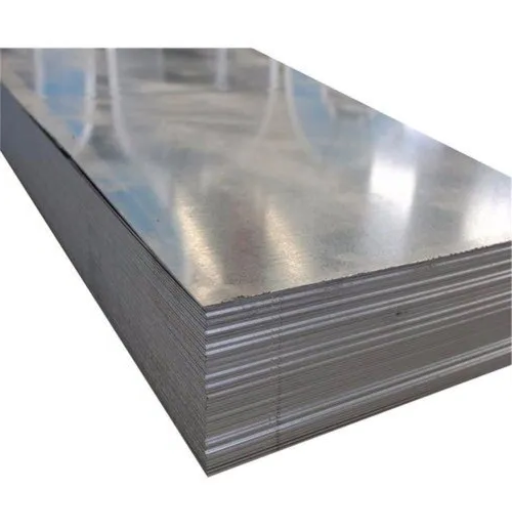
700L Steel finds application in the automotive industry due to an excellent combination of strength, durability, and weight efficiency. This high strength-to-weight ratio benefits the production of lighter vehicles so that fuel efficiency may be enhanced without compromising the safety of the occupants. Also, it guarantees durability under challenging working conditions for smooth performance throughout its lifetime, and it is also easy to code, making for cheap production. These features render 700L steel a very versatile and trusted material for automotive components.
Key Features and Benefits of 700L Steel in Automotive Applications
The use of 700L steel in automobile engineering produces many positive factors for improving vehicle performance, in some way relating to fuel efficiency and the margin of safety. Five key features and benefits of 700L steel are explained below, together with supporting details and data:
- High strength-to-weight ratio-
700L steel is strong but extremely light, allowing for the design of lighter vehicles. A 10% vehicle weight reduction has been found to raise fuel efficiency by 6-8%, which is critical in meeting present pollution and efficiency standards.
- Improved Safety Features
Due to its higher tensile strength than typical steels, 700L steel protects in crashes by absorbing and distributing impact forces. Using this steel in vehicle design guarantees the safety of passengers by complying or exceeding modern regulations.
- Corrosion Resistance
Being corrosion resistant, 700L steel is responsible for the overall longer life of the vehicles with a low maintenance cost. The corrosion resistance applies to differential environmental conditions, such as snow or road salt exposure.
- Enhanced Durability and Longevity
700L steel’s strength has enabled it to withstand numerous uses over certain periods with minor wear or degradation. This can translate into reliable performance for the long term, especially for automotive components undergoing frequent stress, such as chassis and structural reinforcements.
- Cost-Effective Fabrication
Easy to shape, cut, and weld, 700L steel speeds up manufacturing processes and keeps production costs low for automotive companies. Thus, manufacturers enjoy hassle-free operations without compromising on quality or performance.
Taking advantage of all these good properties, 700L steel provides a conducive environment for making safer, more efficient, and longer-lasting vehicles, hence its being a cherished material in the contemporary automobile industry.
Advantages of Using High-Strength Steel in Automobile Manufacturing
| Key Point | Details |
|---|---|
| Improved Safety | Enhances crash performance and structural integrity |
| Lightweight Design | Reduces vehicle weight for better fuel efficiency |
| Fuel Efficiency | Lighter vehicles consume less fuel, reducing emissions |
| Durability | High strength ensures long-term performance and reliability |
| Cost-Effectiveness | Reduces material usage while maintaining strength |
| Crash Energy Management | Absorbs impact energy efficiently during collisions |
| Environmental Benefits | Supports sustainability with recyclable materials |
| Formability | Allows complex designs with advanced manufacturing techniques |
| Stiffness | Maintains structural rigidity for better handling and safety |
| Versatility | Suitable for various automotive components like chassis and beams |
How Does 700L Automotive Steel Plate Compare to Other Structural Steel?
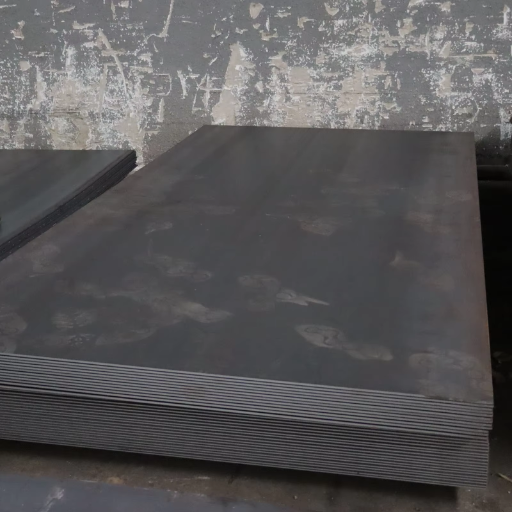
Because it encompasses the unusual amalgamation of strength and flexibility, 700L automotive steel plate is best applied in rigorous applications. In some ways, 700L might be considered superior to structural grades of steel, such as having better tensile strength and being lighter in weight, conforming very well to alterations in vehicle performance and fuel efficiency. Welding possibilities and anticorrosive nature give the manufactured components an increased lifetime. Given these attributes, the 700L steel is much more efficient and expedient in meeting modern safety and performance requirements.
Comparing 700L to Other Steel Grades
| Parameter | 700L Steel | 304 Stainless Steel | 316 Stainless Steel | 410 Steel | 2205 Duplex Steel |
|---|---|---|---|---|---|
| Yield Strength (MPa) | ≥750 | ~240 | ~230 | ~275 (annealed) | ~500 |
| Tensile Strength (MPa) | 800–950 | ~590 | ~590 | ~520 (annealed) | ~700–800 |
| Elongation (%) | ≥10 (thickness <3mm) | ~40 | ~40 | ~15–20 (annealed) | ~25 |
| Corrosion Resistance | Moderate | Excellent | Superior to 304 | Moderate | Superior to 316 |
| Weldability | Good | Excellent | Excellent | Poor | Good |
| Applications | Automotive beams, chassis | Kitchenware, food processing | Marine, chemical environments | Cutlery, turbine blades | Offshore, chemical processing |
| Key Features | High strength, lightweight | Corrosion resistance, versatile | Chloride resistance, durable | Hardenable, wear-resistant | High strength, corrosion-resistant |
Understanding Dual Phase Steel in Automotive Beams
In automotive beams, different phases of steel, such as one-phase steel, are widely used as DP steel because they present a favorable combination of high strength and excellent formability. Its microstructure comprises a soft ferrite matrix and rugged martensite islands, providing an exceptional strength-to-weight ratio. Thus, it becomes one of the best options for structural parts that must be strong but light, thereby contributing to better fuel efficiency and crash performance.
Key Features and Benefits of Dual Phase Steel:
- High Strength—DP steel has an exceptional tensile strength ranging from 500 MPa to over 1200 MPa, making it capable of withstanding large loads without deforming.
- Good Formability—The soft ferrite phase allows the steels to be formed into complex shapes without cracking, thus providing a great deal of design freedom in automotive applications.
- Energy Absorption- The combination of phases ensures superior energy absorption during collisions, which improves crash safety performance.
- Weldability- DP steel retains good welding properties to provide welds that ensure good assembly and integrity.
- Weight Reduction—Using DP steel allows the firm to make lighter components without losing strength, which in turn supports better fuel efficiency and reduced CO2 emissions.
These features have, therefore, cemented dual-phase steel as a core material for the safer, more efficient, and environmentally friendly design of automotive beams.
What Are the Customization Options for 700L Steel Plate?

The Customization of 700L Steel Plates can be conducted by the particular application requirements in the following manner:
- Dimensions—The plates are procured in varying thicknesses, widths, and lengths to accommodate a project’s different needs.
- Surface Finish – Different finishes, such as smooth or patterned, are available depending on the application.
- Heat Treatment—Guarantee that the plates are heat-treated for increased strength, hardness, or flexibility, according to needs.
- Cutting and Shaping—The steel plates can be precisely cut or shaped into custom designs or forms for use in special applications.
- Coatings—According to the respective working environment, Additional coatings, such as anti-corrosive coatings, can be applied here.
These options thus ensure the optimum performance of the 700L steel plates in various industries and applications.
Exploring Different Thickness and Yield Strength Options
| Thickness Range (mm) | Yield Strength (MPa) | Tensile Strength (MPa) | Elongation (%) | Applications |
|---|---|---|---|---|
| 4–53 | 700 | 780–930 | ≥14 | Load-bearing structures |
| 53–100 | 650 | 780–930 | ≥14 | Heavy-duty structural components |
| 100–160 | 650 | 710–900 | ≥14 | High-stress industrial applications |
| 0.7–2.1 (Cold Rolled) | 700 | 780–930 | ≥14 | Lightweight load-bearing structures |
| 2–10 (Hot Rolled) | 700 | 780–930 | ≥14 | Automotive and construction components |
How Suppliers Provide High-Quality 700L Steel
We secure raw materials from reputed vendors to maintain the utmost quality for 700L steel and enforce stringent quality control measures across production activities. Some manufacturing processes are comprised of precision rolling and heat treatment processes, granting the precise mechanical properties required. Strict testing procedures, including tensile strength and impact resistance tests, ensure proof of performance. We assure that the steel fulfills clients’ varied requirements through expertise, innovation, and adherence to standards.
How Do Engineers Optimize 700L Steel for Maximum Performance?
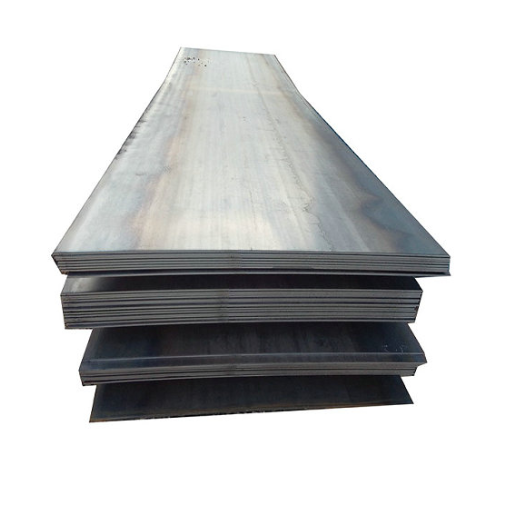
700L steel is engineered for the highest performance through precise composition, processing, and treatment control. The composition is carefully adjusted by adding alloying elements like carbon, manganese, and silicon to increase strength, durability, and weldability considerations. The steel is subjected to advanced heat treatment that alters its microstructure, imparting features of enhanced toughness and wear resistance. There is also stringent quality control during production to ensure the steel consistently meets its performance criteria. All these parameters collectively allow the 700L steel to perform excellently in the most demanding applications.
Designing with 700L Steel for Load-Bearing Structures
| Key Point | Details |
|---|---|
| Yield Strength (MPa) | 700 minimum |
| Tensile Strength (MPa) | 780–930 |
| Elongation (%) | ≥14 |
| Impact Toughness | 69 J at -40°C (Strenx® 700 E) |
| Thickness Range (mm) | 0.7–160 |
| Applications | Offshore, marine, and heavy-duty structures |
| Weight Reduction | Up to 40% compared to lower-grade steels |
| Weldability | Excellent with conventional methods |
| Formability | High, suitable for complex designs |
| Standards Compliance | Meets EN 10025-6 S690QL and S690QL1 |
Ensuring Lightweight and Toughness in Automobile Beams
In selecting automobile beams for lightweight construction and toughness, 700L steel offers compelling advantages. The following are five critical factors that make it ideal to ensure these properties:
- High Strength-to-Weight Ratio
700L steel offers a brilliant strength-to-weight ratio that facilitates using less material for the same structural integrity. Making the vehicle beams lighter enhances fuel efficiency.
- Superior Impact Resistance
Due to its superior toughness and microstructural properties, steel resists impact and deformation; thus, it performs well in crash scenarios where passenger safety is paramount.
- Enhanced Formability
Steel provides good formability, so manufacturers can shape beams of complex geometry without compromising on strength. This ensures design flexibility while guaranteeing dependable performance under demanding applications.
- Corrosion Resistance
Coated and treated using advanced methods, 700L steel is highly resistant to corrosion, thereby reducing maintenance while securing a longer operational life for automobile beams in various environments.
- Cost-Effective Production
The production of 700L steel is undertaken efficiently, thus providing a cost-effective alternative to automotive components without compromising on quality or performance.
The above factors state that 700L steel is a potential candidate as a reliable material for manufacturing lightweight and tough automobile beams.
References
- Upgrading the Center for Lightweighting Automotive Materials and Processing – OSTI.gov
This source discusses lightweight automotive materials and their integration into academic programs. - On the Formability of Automotive TRIP Steels – SAE International
A technical paper focusing on the properties and formability of automotive steel sheets. - Innovative Manufacturing Technology Enabling Light Weighting with Steel – Springer
This article explores advancements in steel grades like 700L for automotive applications.
Frequently Asked Questions (FAQ)
Q: What is 700L steel and why is it beneficial for automotive applications?
A: 700L steel is high-strength steel that offers excellent strength and toughness, making it ideal for demanding load-bearing structures in automotive applications. Its high tensile strength and superior weldability contribute to vehicle weight reduction, enhancing fuel efficiency and performance.
Q: How does the plasticity of 700L steel compare to other automotive steel options?
A: 700L steel’s plasticity is notable for its balance between strength and formability. This makes it suitable for components requiring complex shapes, such as chassis and cross beams, without compromising strength or toughness.
Q: What role does 700L steel play in reducing vehicle weight?
A: 700L steel is widely used in automotive applications due to its high strength-to-weight ratio. By using this steel, manufacturers can significantly reduce the weight of components like longitudinal beams and trailers, thus improving vehicle performance and fuel efficiency.
Q: Can 700L steel be used for both hot-rolled and cold-rolled processes?
A: Yes, 700L steel can be used in hot and cold-rolled processes. Hot-rolled 700L steel provides enhanced formability and is often utilized in applications requiring high tensile strength and premium performance.
Q: What makes 700L steel suitable for beams and chassis components?
A: 700L steel is suitable for beams and chassis components due to its higher yield strength and excellent weldability. These properties ensure that components can withstand high stress and demanding load-bearing conditions, extending the lifespan of the vehicle parts.
Q: How does 700L steel ensure corrosion resistance in automotive applications?
A: 700L steel offers good corrosion resistance, crucial for automotive applications exposed to harsh environments. This resistance enhances the durability and longevity of components such as cross beams and trailers.
Q: What quality controls are in place for 700L steel production?
A: Strict quality controls are implemented in the 700L steel production line to ensure consistent high quality and performance. These controls include precise checks on tensile strength, weldability, and formability to meet automotive industry standards.
Q: Why is 700L steel preferred over traditional steel for automotive frame construction?
A: 700L steel is preferred for automotive frame construction because of its high strength and toughness. These properties allow for thinner and lighter steel sheets without compromising structural integrity, resulting in better fuel efficiency and enhanced safety.
Q: How does using 700L steel impact the stamping performance in automotive manufacturing?
A: 700L steel improves stamping performance due to its excellent formability and plasticity. This facilitates the creation of complex shapes and components, increasing manufacturing efficiency and reducing costs.
Q: Where can I find 700L steel plates and sheets for automotive applications?
A: 700L steel plates and sheets for automotive applications can be sourced from reputable suppliers, including Steelpro Group and product listings on platforms like Alibaba.com. These suppliers offer a range of high-strength steel products suitable for various automotive needs.

